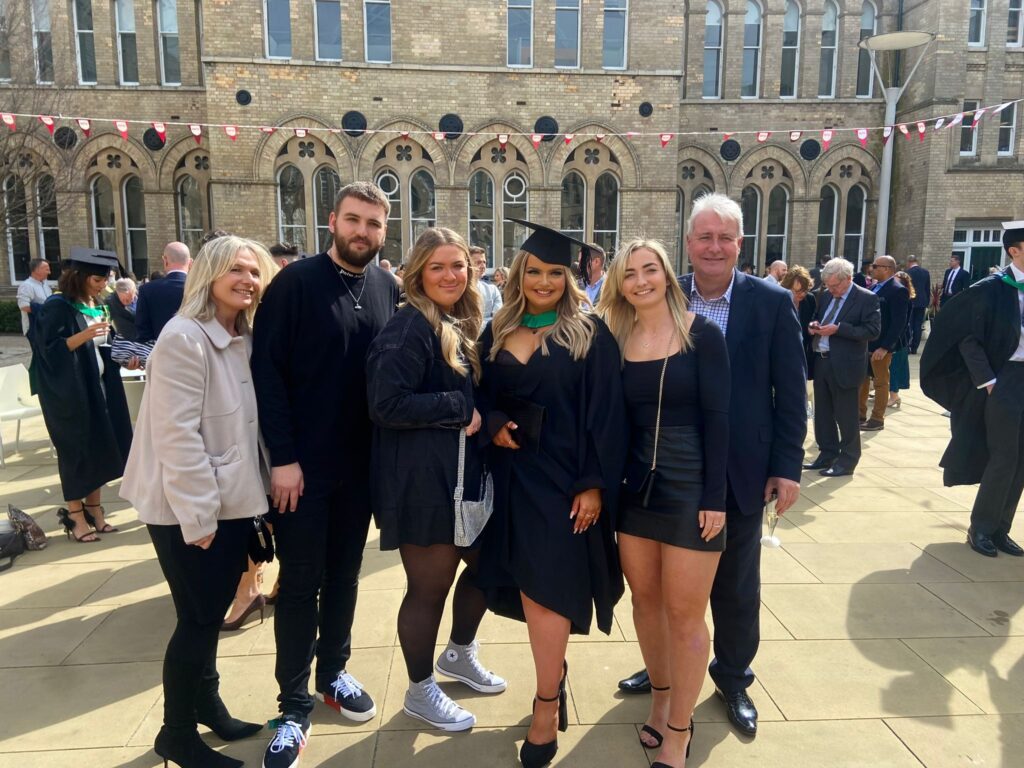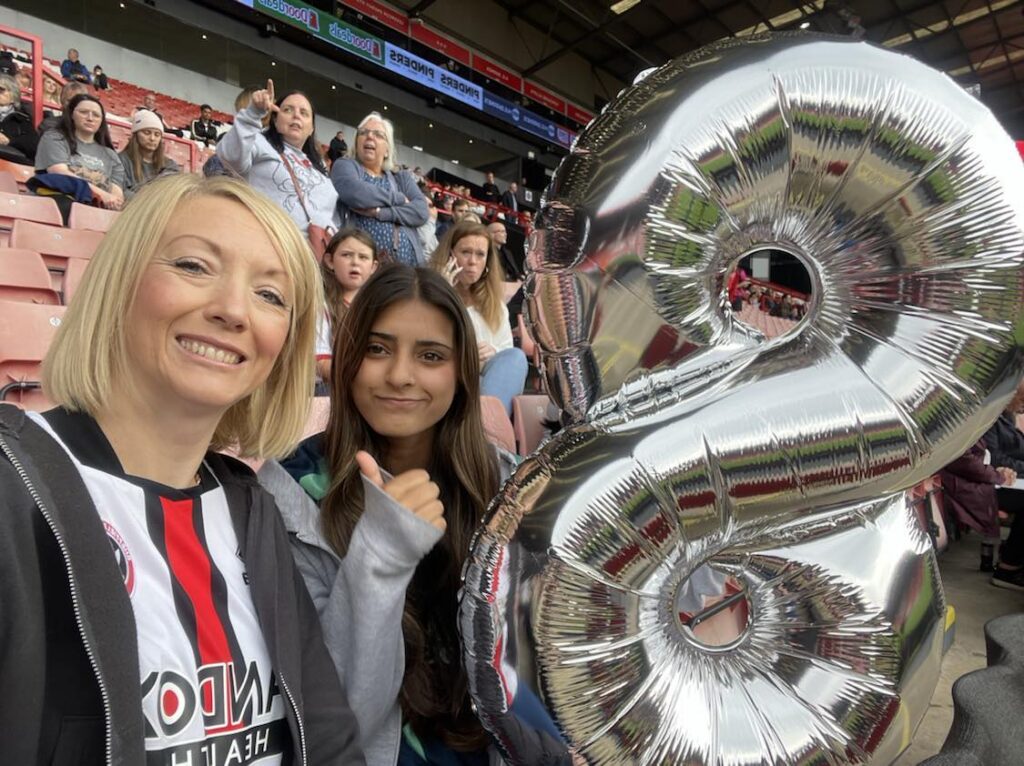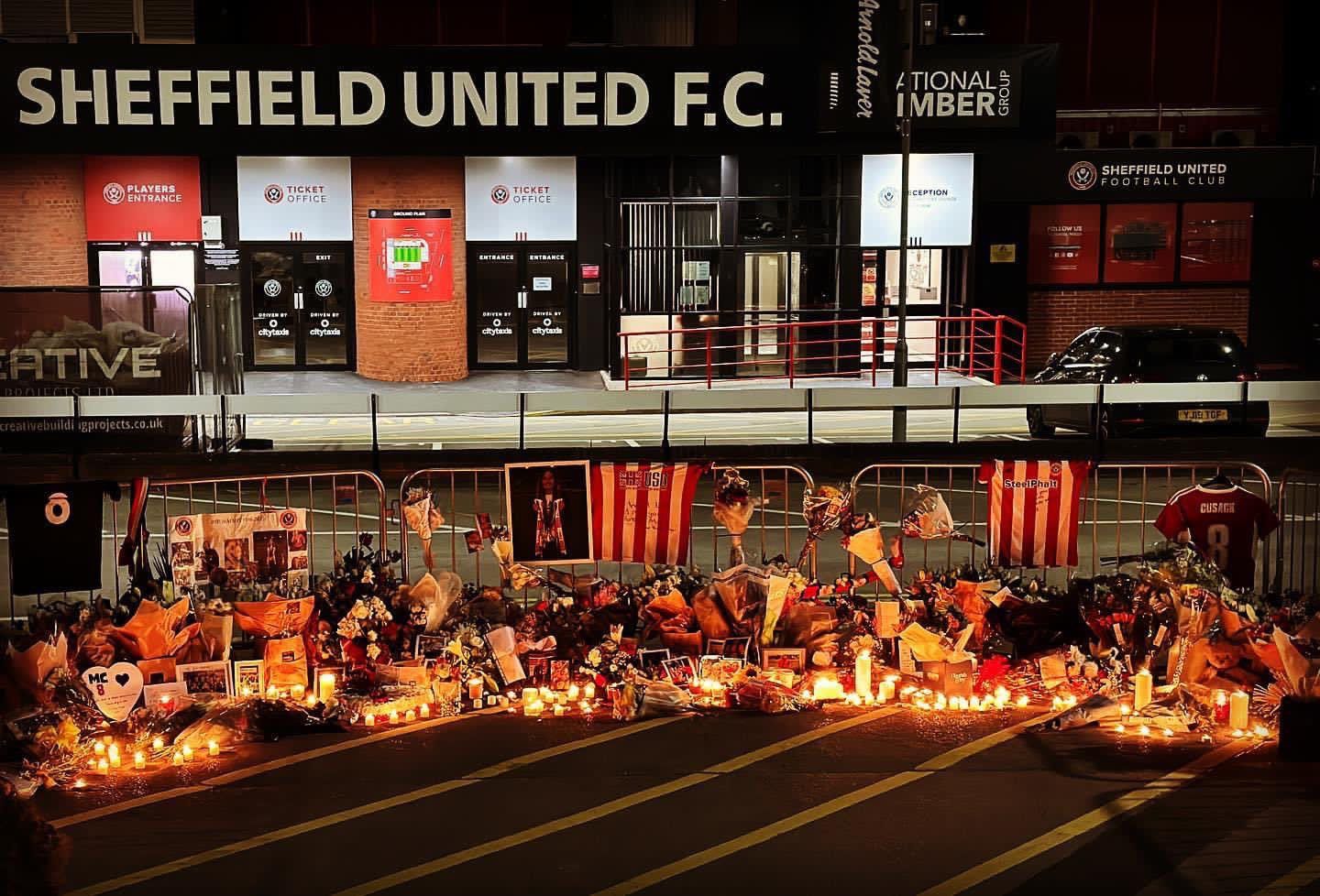In football, numbers matter. Beckham number 23. Bobby Moore number six. Pele 10. Guardiola four.
The game’s greatest players are indivisible from their squad number, with replica shirts lining the backs of screaming fans in stadiums from Doncaster to Dubai and indelible football chants – Fernando Torres, Liverpool’s number nine; he scores again number 10 it’s Rooney – burned in the brains of punters long after players have hung up their boots.
So when Sheffield United’s longest-serving women’s player Maddy Cusack died at the age of 27 in September this year, fans not only gathered in their droves to say farewell to the footballer they knew as “Miss Sheffield United”, but to the number eight, which had adorned the midfielder’s shirt since she joined the club in 2019.
“Maddy quickly became the Sheffield United poster girl,” says her brother Richard Cusack, 28, a sports journalist. “The number eight was always associated with her.”
He was Maddy’s closest confidante when it came to football and is driving the family’s campaign to have the number eight retired.
“I don’t think I would feel comfortable seeing another player wear the shirt,” he says. “She was more than a player.”
Maddy’s involvement with Sheffield United went far beyond her time on the pitch. Her nine-to-five was a marketing executive for the club. She shared a flat in Doncaster with the team’s co-captain Sophie Barker. Her team, and the club, meant everything to her.

“These girls are having to juggle two jobs, they’re having to train and behave like male athletes for a miniscule of the amount of money they get,” Maddy’s mother, Deborah Cusack, told the BBC last week, following news that the club had agreed to a “thorough external investigation” into the events leading up to her death. “It’s too much. The pressures are way too much.”
For Maddy’s younger sister, Olivia, the expectations faced by a player having to wear Maddy’s number would only increase.
“There’s a lot of pressure in football anyway – especially women’s football. I just think it’d be an unnecessary amount of pressure on an upcoming player,” says the 24-year-old social media manager.
After her death, Maddy’s best friend, Hollie Barker, also a former United player, brought her number eight shirt home to the Cusack family. They also retain the shirt she wore for her 100th appearance for the club in 2019, as well as the black warm-up shirts printed with Maddy’s picture that the team wore in early October for their first game since Maddy’s death.
“There’s only one number eight,” says Olivia. “There won’t be another.”
Retiring a player’s number isn’t common practice in British football. “As far as I can see, there’s no precedent in the English women’s game for it,” says Professor Martin Polley, director of the international centre for sports history and culture at De Montfort University.
He cites just 11 cases of shirts being retired in the men’s game in England – Bobby Moore, the late West Ham captain who had his number six retired 15 years after his death from cancer in 1993, chief among them.
Then there’s Marc-Vivien Foé, whose number 23 was retired by Manchester City after he died on the pitch from an undiagnosed heart condition in 2003. And, likely more from a merchandising consideration than anything else, Jude Bellingham, who had his number retired by home club Birmingham City after he left for Borussia Dortmund in 2020.
“The vast majority of numbers pass on to the next player to come into that role,” says Polley. “It’s only in very special, unique circumstances that you see retirement. No doubt the practice will grow more as the women’s game gets bigger and rightly gets more attention. So I think that Maddy’s story is a very interesting moment.”

For Maddy’s young fans – and there are flocks of them – Sheffield United’s number eight belongs to her. If the number were to pass on to the next player, says 14-year-old Hannah Bhatia, “It would seem quite disrespectful. It’s Maddy’s number, and it should only belong to her.”
Hannah, who plays for Hallam and Redmires Rangers FC, has changed her own number to 28 in honour of Maddy’s birthday on 28 October. One of her friend’s shirts hangs on the wall of her bedroom.
“Maddy is our number eight,” says Hannah’s mum Rachel Iball. “It feels like there’s a big hole without her. It’d always be Maddy’s voice we would hear. And obviously that’s not there now and the atmosphere has changed.”
The retirement of Maddy’s number isn’t the only way the Cusack family are hoping Maddy is remembered at Sheffield United. Once the girl whose photograph shone on the side of its Bramall Lane stadium, whose face redefined football for countless young women across South Yorkshire and beyond, the family want something more permanent where people could go “and feel close to her”.
And as for MC number eight, the moniker used by Maddy and all the fans who loved her?
“She’s passed away with it and it’s hers. It stays with her as far as I’m concerned,” says her brother, Richard.




